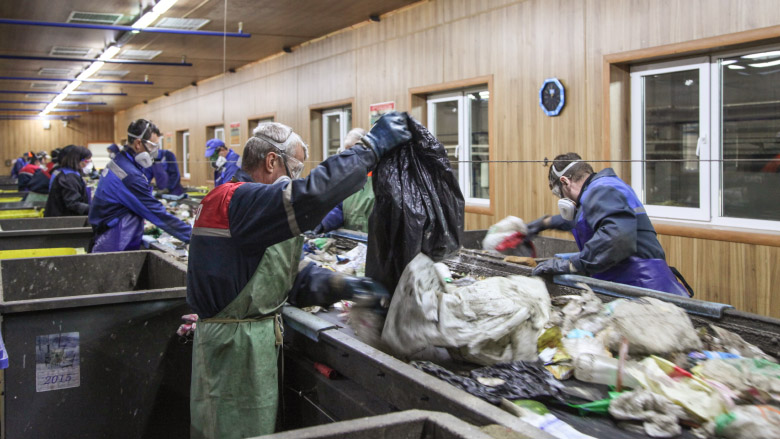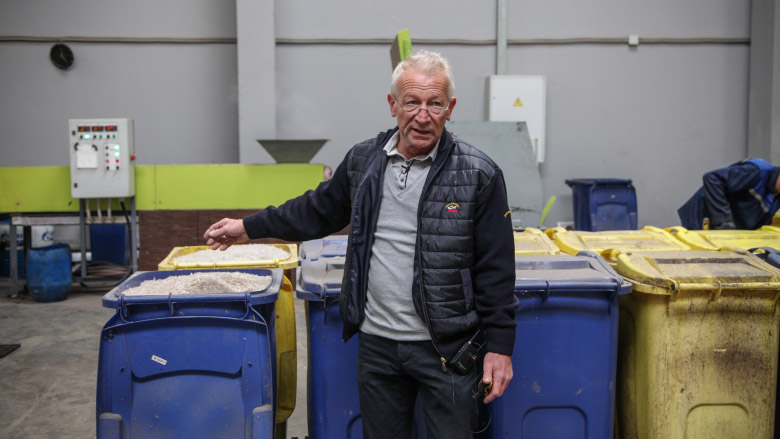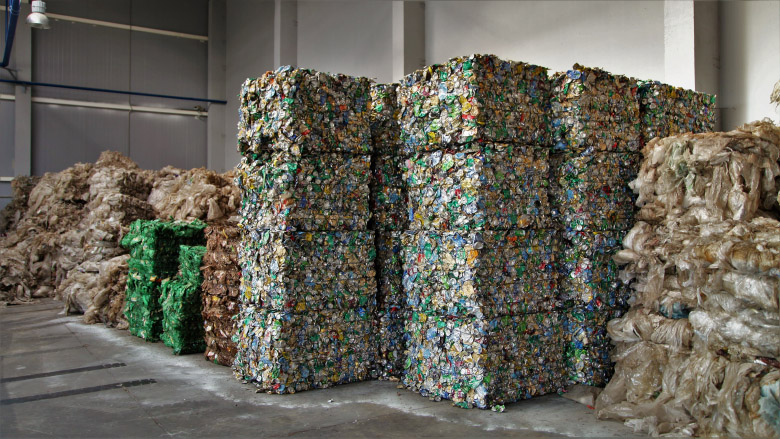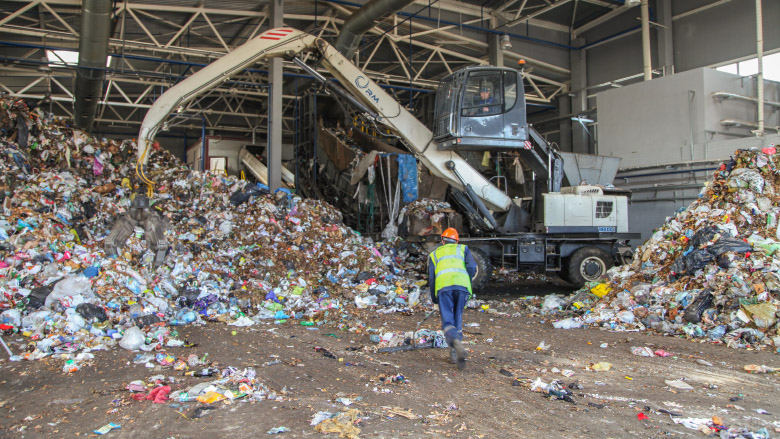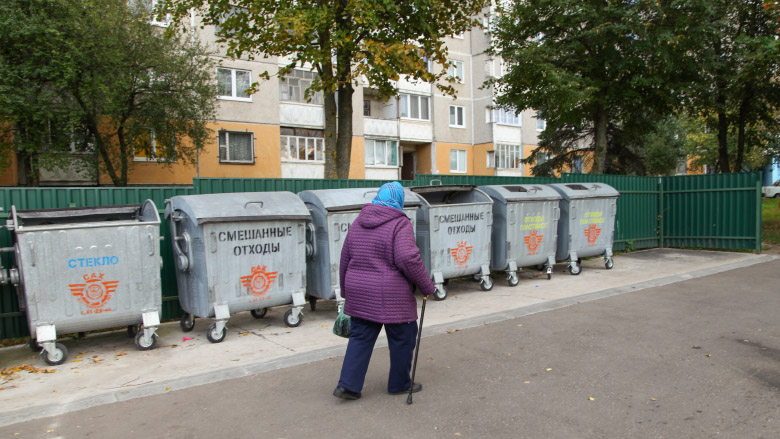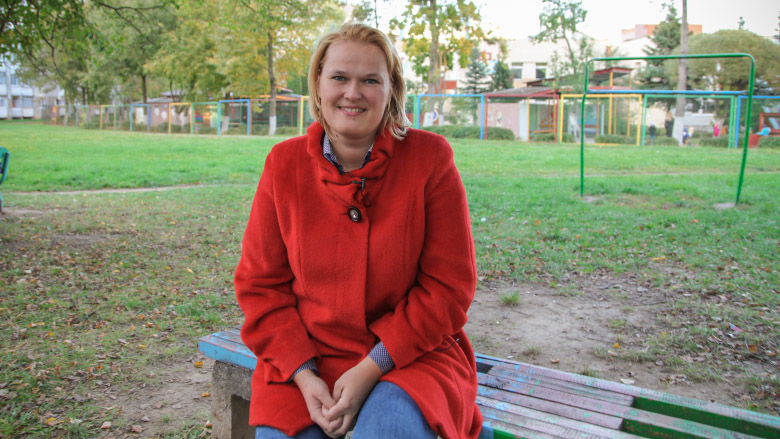Waste chutes in apartment blocks are often associated with poor sanitation, nasty smells and flies. Regardless, many residents were disgruntled when the city authorities announced that waste chutes would be welded shut. A few people even dumped bags with garbage by the front door of their building.
“Some people didn’t feel like going the extra distance to take out their garbage, especially in the winter time when there’s slippery ice,” says Pavel. “But, over time, everything has worked out. And now, many people are grateful to us for closing the garbage chutes. We aimed to put all container sites as close as possible to apartment buildings to make it convenient for people.”
On display around Grodno these days are many large, bright billboards promoting separate waste collection – all part of a public communications campaign to get more people involved in waste separation. In addition to the ads, the campaign has involved more than 400 community meetings, TV and other media information programs, and theater performances at schools and children’s summer camps.
Changing Mindsets
Following the public information campaign, many of Grodno’s residents have become more active in sorting their garbage at home.
“I don’t have the heart to throw everything in one litter basket,” says Olga Kremleva. “Perhaps because I know what will happen next with this waste.”
